Top 100 Albums of 1990-1999 (Part Ten: 5-1)
By No Ripcord Staff
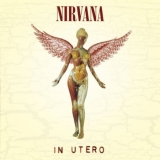 5. Nirvana
5. Nirvana 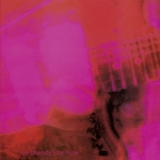 4. My Bloody Valentine
4. My Bloody Valentine 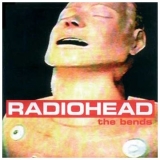 3. Radiohead
3. Radiohead 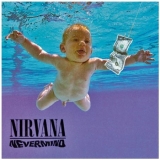 2. Nirvana
2. Nirvana 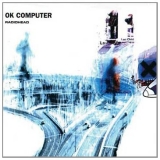 1. Radiohead
1. Radiohead
A few weeks ago, over twenty No Ripcord contributors compiled lists of their Top 40 albums of the decade. These were then collated and turned into this, the No Ripcord Top 100 Albums of 1990-1999. Votes were received for 424 different albums. Some records were voted for multiple times, some received one vote in 40th place (sorry Drives Like Jehu, The Divine Comedy and The Cranberries), one record only just scraped into the Top 40 despite being top of two writers' individual lists, another couldn't make the Top 5 despite placing on over half of our contributors Top 40s.
And it's all boiled down to these five iconic records. Between them, they accumulated 70 votes, though only three writers included all five of them in their Top 40. Whatever your opinion of these albums, you can't deny that they've had a significant effect on music as we know it, and their influence is still keenly felt today, over twenty years on, in some cases.
Thanks for reading this far, we hope you enjoyed our list, so without further ado, here are the all important final five.
[Bubbling Under] | [Writers' Picks] | [100-81] | [80-61] | [60-41] | [40-21] | [20-16] | [15-11] | [10-6] | [5-1]
 5. Nirvana
5. Nirvana“In Utero”
(DGC – 1993)
Nirvana’s very short, though culturally significant, run consisted of one independent release, one commercial breakthrough, one “feed the voracious fans until the band gets its shit together” compilation and one very poignant finale. 1993’s In Utero was to be the band’s “non-commercial” follow-up to the cultural shift that ensued once Nevermind launched a new decade’s couple-year fascination with all things flannel, “alternative” and Seattle. And while Nevermind won the band notoriety, Kurt Cobain had expressed displeasure with the final product, citing its sonic sheen as out of touch with what Nirvana had originally intended. In order to achieve something closer to what the band was about creatively, Big Black’s Steve Albini was elected to record the album, himself having helmed Pixies’ Surfer Rosa. As Cobain wrings the broken introductory notes of Serve The Servants from his guitar, a self-deprecating, snide reaction to the band’s fortune is brought to the surface: “Teenage angst has paid off well / Now I’m bored and old.” Though In Utero isn’t the self-imposed, completely alienating indictment of the band’s disdain for their own corporatisation it was intended to be, Nirvana’s compulsion for noise rock and appeal for college radio rotation comprise much of the album’s make-up. The eerily tinged sludge they generate for Scentless Apprentice and the riff-shaken onslaught of Milk It both sound out of step from a commercial standpoint, not to mention the rhythmic inconsistency of Frances Farmer Will Have Her Revenge On Seattle and the overt battery of Radio Friendly Unit Shifter. And while In Utero can boast to some degree to provide a more honest testimony to the band’s vision creatively speaking, Cobain’s adeptness at writing hooks remains the essence of Nirvana’s success musically; songs like Heart Shaped Box, Pennyroyal Tea and All Apologies are as impactful, noteworthy and accessible as any single from Nevermind. In Utero’s true legacy though, is that it is Nirvana’s last album, Cobain having committed suicide in 1994. When the opening notes of All Apologies sound, it’s as if the requiem of a generation is read aloud. By the album’s end, you’re left sad and uncertain. Sean Caldwell
Playlist: Frances Farmer Will Have Her Revenge On Seattle
 4. My Bloody Valentine
4. My Bloody Valentine“Loveless”
(Creation – 1991)
Perhaps it's easier to approach this legendary album now it finally has a follow up – this year’s m b v. And yet, I listen to Loveless and somehow it still defies definition. Shoegaze? My Bloody Valentine were way above that. Rock? This was far too out there to be lumped alongside whatever else was going on at the time, or indeed since. Understandably, a lot of people will hate it. They'll hear nothing but noise and murmured vocals over some repetitive beats. This is not a "pop" album in the usual context. However, those whose ears tune a different direction will hear an album of sublime beauty. Hyperbole it may sound, but to this listener, Loveless may well be the Pet Sounds of the 1990s: an obsessive attempt by one gifted individual to get down the music in his head as perfectly as possible. Stories of the troubled birth of this album are legion: numerous studios were used and the subsequent bill nearly destroyed Creation Records. Whatever the cost, it was still great value. It starts with a hell of a noise - drums crashing, a heavy riff introducing Only Shallow - and ends with the guitar chimes and hip-hop beats of Soon. In between... well, how to even begin to describe? Perhaps saying it is akin to a dream of sorts is the best way. Play it late at night, at the point where your brain is slowly drifting off to sleep, and the beauty somehow emerges deeper than ever. It doesn't belong to 1991, it doesn't belong to 2013. Kevin Shields created something that still sounds like it was thrown back to us from the distant future. In a way, I'm not surprised we got Britpop in the aftermath: the idea of following this up must have been terrifying. DC Harrison
Playlist: When You Sleep
 3. Radiohead
3. Radiohead“The Bends”
(Parlophone / Capitol – 1995)
My introduction to Radiohead started with OK Computer and worked its way backwards. While Pablo Honey’s fate was always to be hurled out of the window of my rich friend’s Mustang for being shockingly not up to snuff, The Bends has stuck to my bones in a way that OK Computer, its younger and smarter brother, never could. OK Computer is better, as objectively as taste can account for; it’s Radiohead’s talent in full force for the first time. But The Bends’ comparative accessibility makes it so much more powerful. It’s a winter record, the first choice of soundtrack for the lonely and cold. Interestingly, it’s not just the sad watersheds like High And Dry or Fake Plastic Trees that are most capable of manipulating emotion. Sulk’s sprawling dreamscape clings to the heart as soon as its now famous and shocking utterance leaves Thom Yorke’s lips; “You are so pretty/When you’re on your knees…” still forces me to close my eyes in pain. Just may very well be the most straightforward rock n’ roll track on the whole record, but even with its fairly 90s-typical alt-rock guitar riffs, it holds up as one of the most emotionally jarring parts of The Bends. Do yourself a favour and watch the video again. Watch as Yorke contorts his face, screaming from a high rise, down at the man lying on the street below. I’ve spent all these years trying to figure out what that man said. It’s chilling. The whole album is chilling. The Bends is a testament to depression. It begs to be played obsessively, on a loop, staring out into the snow-covered emptiness. It’s somehow capable of feeding the numbness while simultaneously pulling emotion right from the bowels. I’m hard-pressed to think of another pure rock record that’s so utterly visceral. Don’t let The Bends get overshadowed by successive albums, each more boundary-pushing and experimental than the last. Nothing quite compares to this raw simplicity. Gabbie Nirenburg
Playlist: Just
 2. Nirvana
2. Nirvana“Nevermind”
(DGC – 1991)
Nevermind is the album that defined a whole genre and heavily influenced countless other bands and artists - not to mention the hordes of flannel-shirt clad, floor-gazing teens who inhabited my university halls more than ten years after it was released. And that’s not a dig at anyone; Kurt Cobain’s music resonated with so many people because it encapsulated all the feelings of frustration and isolation that so many people experience in their youth. It’s real, heartfelt and unpretentious, expressed through screaming guitars and raw vocals. It seems ironic that neither the band nor the record label held out any great hope of Nevermind being a sales success. At the same time, Kurt Cobain had nothing but disdain for the frat-boy party-rocker fans that Nirvana’s burgeoning reputation had gained them (this album was given the working title, 'Sheep', in their honour, and In Bloom was written about them). But looking back, it’s difficult to see how this album could have been anything but a commercial and critical triumph. There is something for everyone here: contagious melodic hooks and turns of phrase for the casual listener; giant guitar riffs for the time-served rockers; crystal clear production for the audiophiles. And like so many of the all-time great albums, Nevermind succeeds on the strength of several stand-out tracks. An album that opens with Smells Like Teen Spirit is more or less destined to be fantastic, but songs like Come As You Are, Lithium, Polly and Something In The Way are arguably just as strong. It’s a record so omnipresent in record collections across the globe that it feels almost like part of the furniture - and although you might only listen to it once or twice a year nowadays, it still sets a bar that very few bands can hope to achieve. Joel Stanier
Playlist: Lithium
 1. Radiohead
1. Radiohead“OK Computer”
(Parlophone / Capitol – 1997)
The release of this, Radiohead’s third album, represents the moment when the fragmentation in popular tastes we now live with became too obvious to ignore. Sure, it sold well in the UK and put up decent numbers in the US, but its tepid Billboard chart position (21) was not due to folks sort-of, kind-of liking it, but instead to a rabid subset of the market (namely us) buying it in !droves. This was not music fit to pipe into cubicles with the rest of the Top 40 lest management should incite a Metropolis-style revolt. It depresses me that we will never agree on anything like we agreed on Elvis or The Beatles, but I can also see the benefits in such market segmentation, in this case white, 20-something, and vaguely hip. Sympathetic ears are blown away by this dark masterpiece of the digital age, with its sophisticated musicality, despairing vocals and thematic cohesion. Everyone else can’t hear it at all. The vanishing point of fragmentation is alienation, which is where OK Computer was born. A man “buzzes like a fridge”, another wants to put us “first against the wall”, while it seems our fate is to be “crushed like a bug on the ground”. Futurists were predicting the internet would unite us all online, but the singer feels the world falling apart. Turns out they were both right. Radiohead’s particular brand of modern pessimism was never conducive to the pop charts but the band ploughed on as if blissfully ignorant to this fact and made its grand, expansive statement as if the whole world would be listening. Some people did, more have since, and even more will in years to come, because the music is a source of hope amidst all the negativity, and the combination is both beautiful and true. Alan Shulman
Playlist: Let Down
Oxford's finest take the crown, which they can add to the title of No Ripcord's Best Album of 2000-2009, which they won for Kid A. What do you think? Have your say! Do you agree with the winner? What albums were too high up the list, or too low? What did we miss out altogether? That Disqus box at the bottom isn't just for show, you know.
Also, in case you've been wondering why there are playlist choices below each album, it's because we've compiled a Spotify playlist of all the available choices for your listening pleasure. Give it a spin here and congratulations once more to OK Computer!
5 July, 2013 - 14:51 — No Ripcord Staff
